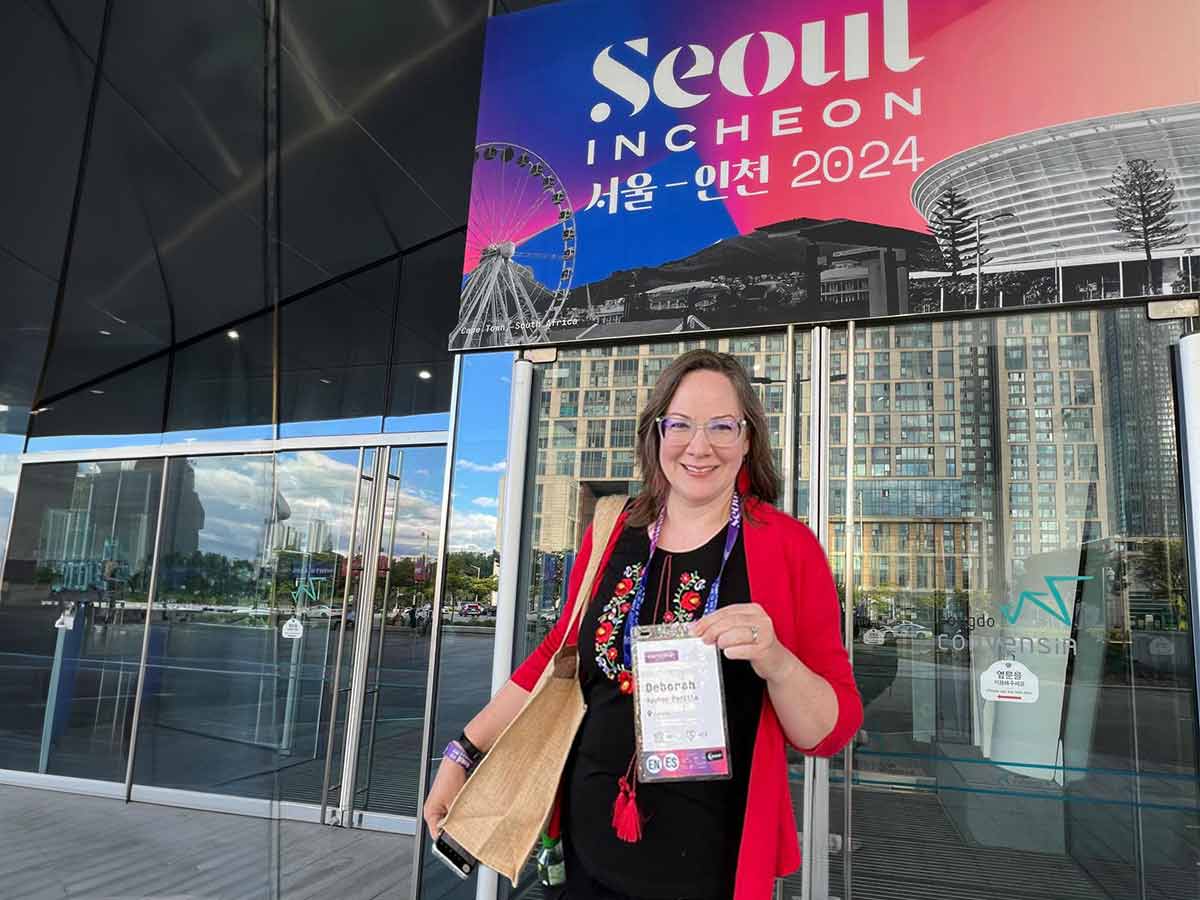
Reflections from the 4th Lausanne Congress

Participating in the Largest, Most Diverse Gathering of Christ-followers
A month and a half ago I walked into the Fourth Lausanne Congress (L4) in Incheon, South Korea where more than 5,000 Christ-followers from over 200 nations gathered in person under the theme Displaying and Declaring Christ Together. I was full of anticipation for the largest multi-cultural experience of my life—what would it look like? How would it feel? What would the Holy Spirit have to say to us?
Here are some "snapshots" from my view at L4 as I asked, “Lord, help me to hear what the Spirit is saying.”
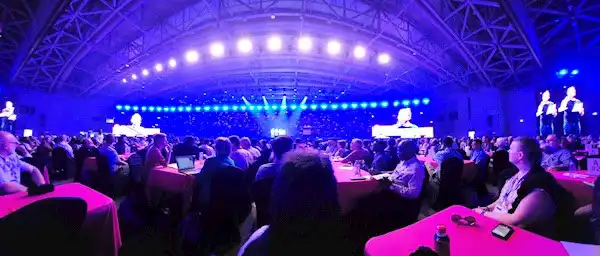
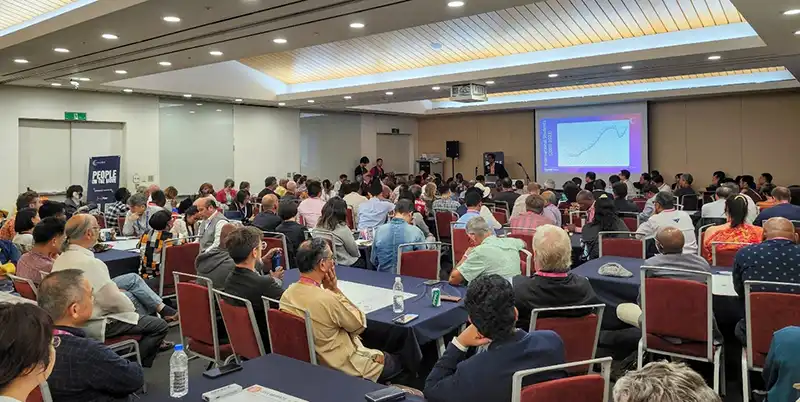
Reflection 1:
We all come with our five loaves and two fish. Jesus is the one who multiplies.
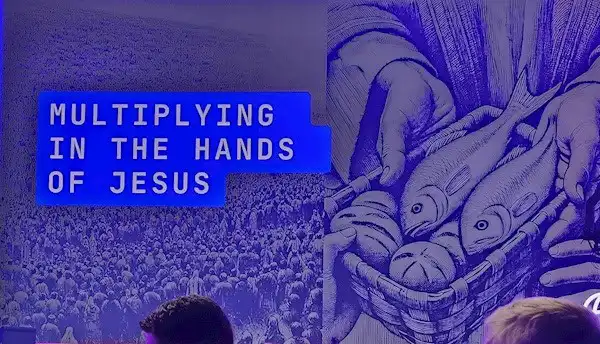
We all come to Jesus with our five loaves and two fish—our passions, efforts, strategies, convictions for service--no one brings more nor less—but they can only multiply when placed in Jesus' hands and through the power of the Holy Spirit. Are we placing our offerings in His hands?
Or are we placing it in politics (earthly power), technology (earthly tools), or our own identities or persuasion (earthly status or alliances)? We spent a day listening to the Persecuted Church. Many of our brothers and sisters in Christ were from places under extreme persecution, war, and disaster but they spoke vividly of the effects of placing their hope in Christ. The pastors of churches in an East Asian country were given multiple standing ovations throughout the week--being the first time they could join us as the global church together in person. What is happening in these and other places? The Holy Spirit is at work and the church is growing faster in these difficult contexts!
When the Holy Spirit comes there is a flattening of earthly power structures, a deeply felt conviction for past wrongs towards others and personal and corporate divides, and a Spirit-fed revival of faith in God. Let us return to reliance on Christ and the work of his Spirit, recognizing that only He can bring about lasting transformation in this world!
Recommended presentations from L4: The Power of Collaborative Action - Lausanne Movement, by Jiyoung Yoo and Jurie Kriel.
Ronaldo Lidório; Suggestion for listening to non-Western voices: On Mission With Chris Wright | A Langham Partnership Podcast
Reflection 2:
Listening deeply to the global church is indispensable for us in the West.
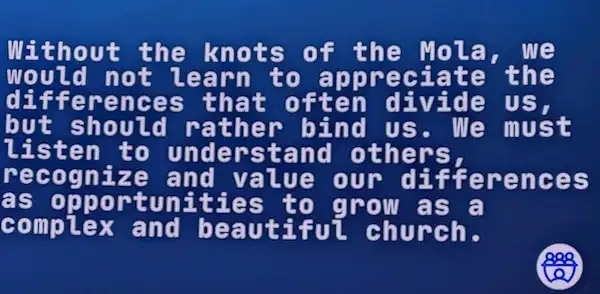
Photo of slide from L4 presentation by Jocabed Solano Miselis, of the Gunadule people of Panamá, referring to her community's beautiful style of embroidery, the Mola.
At L4 we heard from a diverse range of speakers—Christ-followers and leaders from the global church, mission agencies, para-church ministries, and critically—from a representation of the 99% of global believers who see the marketplace as ministry (only 1% of believers work in "professional Christian ministries"). All had the same passion for declaring and displaying Christ in our world—the same Lord, the same Faith, the same Spirit! Many under much more difficult circumstances than ours, and from a vast diversity of thought and perspective. Yet in the West we are still the ones most often driving the conversations that have global implications for all! Assuming that in order to have unity, we need uniformity of language, expression, manner, or resolution!
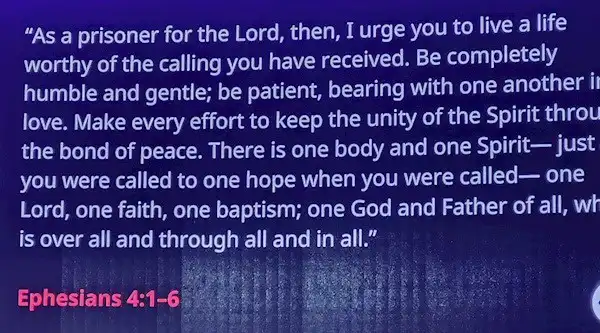
Photo of slide from Ronaldo Lidório’s talk during the last morning session, reflecting on the apostle Paul’s experiences and encouragement to the Ephesian church while he was under house arrest.
How can we display and declare Christ together in this present age, if we don't first learn to listen to our brothers and sisters around the world? Are we listening—deeply, humbly, and with all the curiosity that we have available to us? Are we listening with mutual expectation to hear the voice of the Holy Spirit speaking to us through our global brothers and sisters in Christ as He speaks to us? Let's begin by removing our own cultural blinders one conversation at a time, one listening at a time, and honour what we learn by moving forward in mutuality (with expectation that each one gives and receives equally).
Recommended L4 presentation: Bold Proclamation: Sharing the Gospel with the Nations - Lausanne Movement, Ronaldo Lidório; Suggestion for listening to non-Western voices: On Mission With Chris Wright | A Langham Partnership Podcast
Reflection 3:
We need to embrace global migration as part of God's plan.
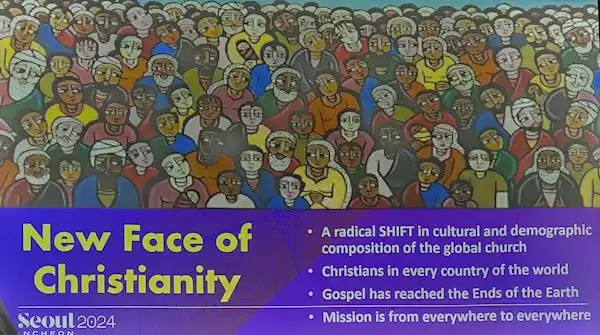
Photos of slides from the four "People on the Move" Gap sessions by Dr. Sam George and Dr Bulus Galadima.
There is a new face to Christianity today: the majority of Christ-followers now come from the Global South. Therefore, many of the migrants leaving their homes due to a myriad of upheavals and coming north-ward are fellow Christ-followers!
- What can we hear and learn from those who are our brothers and sisters in Christ who now live next door?
- Or who attend the diaspora church meeting inside a local mainline church building?
- Or meet in their own building down the street?
As many are leaving the church in our Western societies, just as many newcomers are filling it! So, instead of retreating from change to protect our own cultural faith traditions, can we not welcome and learn from newcomers and their bilingual and bicultural children?
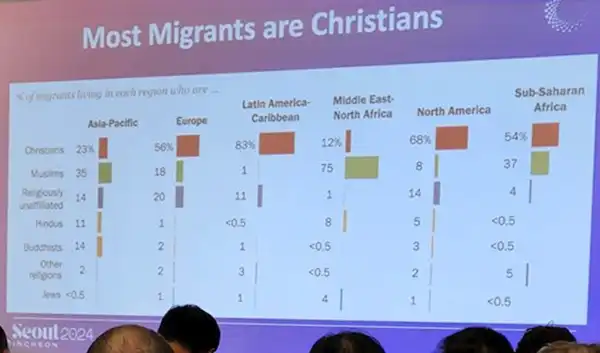
For surely, as our "Mission Strategy" table group agreed, diaspora Christ-followers are the inter-cultural mission workers of the present and future! Often their cultural background is nearer to other newcomers who are our neighbours. So, the cross-cultural gap is much less to connect, listen and share the good news. These "near-culture" believers can also reach out more effectively in other parts of the world and have significant insights and perspectives as well as skills and experiences—compared to those of us from more "distanced" cultures who may have very different ways of displaying and declaring Christ.
Building intercultural sensitivity can begin with common ground and grows as we venture into each other's lives and traditions, and we also discover differences—enriching the body of Christ—not diminishing it; displaying His multifaceted beauty as shown through His bride, the Church.
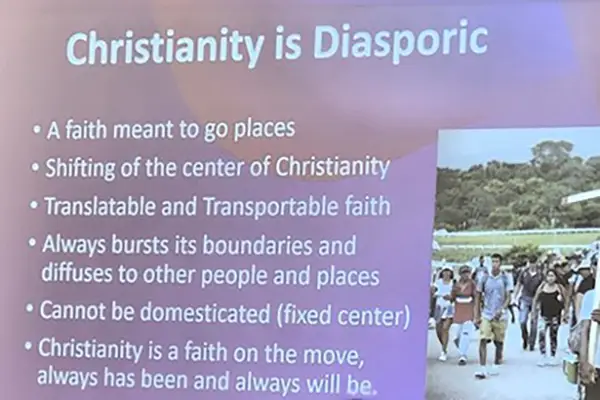
Reading through the Bible with a diasporic lens (such as, seeing how God speaks to or through people on the move from their homeland), we see that God has used the displacement of people for redemptive purposes. Those who are coming to our cities and countries who are not Christ-followers, may have their very first opportunity to 'hear' and 'see' Christ through our actions and words! What will they see and hear? How can we, as the body of Christ, display and declare Him together, with ALL our brothers and sisters, to those He is bringing to us?
Recommended Video: People on the Move (GDN L4 video with Captions)
Reflection 4:
Now is the time to collaborate as the body of Christ.
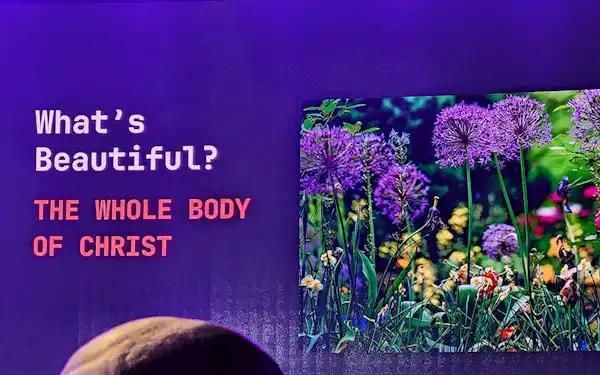
Significant differences can be present in our interpretation of God's word, and how He acts in relationship to people and the world. Our beliefs about the future and final events of human history on earth can differ widely. Priorities to sharing the love of God with others—whether through word (evangelism) or in action (social justice ministry)—can vary widely. And, even our priorities for which social justice issues are more important can diverge. However, displaying and declaring Christ together in this globally interconnected world calls for unity amidst difference that goes beyond uniformity. We need a broader vision of the church that honours the Spirit's work across boundaries and in the margins.
As part of our Congress commitment, I have personally committed to fostering collaboration in my context. Let us each find ways to humbly and courageously unite in action as the body of Christ, for a world that needs His light.
Recommended presentation: Confronting Division: Pursuing Unity Through the Spirit - Lausanne Movement, by Anne Zaki.
Be completely humble and gentle; be patient, bearing with one another in love. Make every effort to keep the unity of the Spirit through the bond of peace. There is one body and one Spirit, just as you were called to one hope when you were called; one Lord, one faith, one baptism; one God and Father of all, who is over all and through all and in all.
Ephesians 4:2-6, NIV
 Deb and Ramón serve as multipliers of key Bible-based resources and training in the languages and cultures of diverse diaspora communities and in the format that is most accessible to them. After ten years of involvement in Bible Translation ministry in Oaxaca, Mexico, Deb & Ramón joined Outreach Canada in 2021 bringing their skills and experience to serve in the broader context of Bible Engagement among already existing diaspora ministries across Canada. Their vision is to collaborate with these local ministries to support strategic and effective use and access to Scriptures and other resources in the minority languages of communities of immigrants. As they remain collaboratively engaged with SIL Global’s Scripture Access and Diaspora Services, the Padillas seek to serve as collaborators and catalysts for promoting deeper engagement with God in outreach and service among newcomers especially. Most recently, Deb and Ramón are focusing on Caring for Wounded Hearts—an oral, Bible-based community program for building safe communities for strong mental health and connection with God.
Deb and Ramón serve as multipliers of key Bible-based resources and training in the languages and cultures of diverse diaspora communities and in the format that is most accessible to them. After ten years of involvement in Bible Translation ministry in Oaxaca, Mexico, Deb & Ramón joined Outreach Canada in 2021 bringing their skills and experience to serve in the broader context of Bible Engagement among already existing diaspora ministries across Canada. Their vision is to collaborate with these local ministries to support strategic and effective use and access to Scriptures and other resources in the minority languages of communities of immigrants. As they remain collaboratively engaged with SIL Global’s Scripture Access and Diaspora Services, the Padillas seek to serve as collaborators and catalysts for promoting deeper engagement with God in outreach and service among newcomers especially. Most recently, Deb and Ramón are focusing on Caring for Wounded Hearts—an oral, Bible-based community program for building safe communities for strong mental health and connection with God.
Additionally, in her role, Deb seeks to include opportunities and resources for intercultural growth as a necessary component of both collaboration and integration of resources and service.